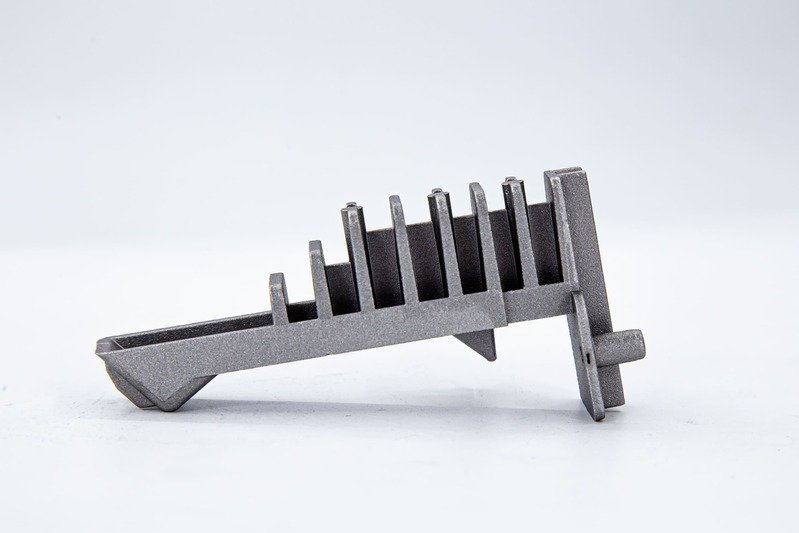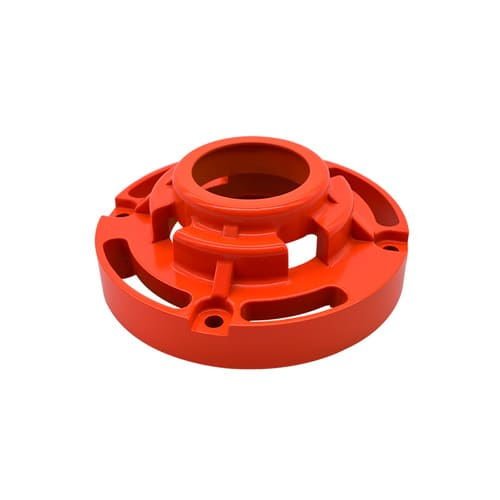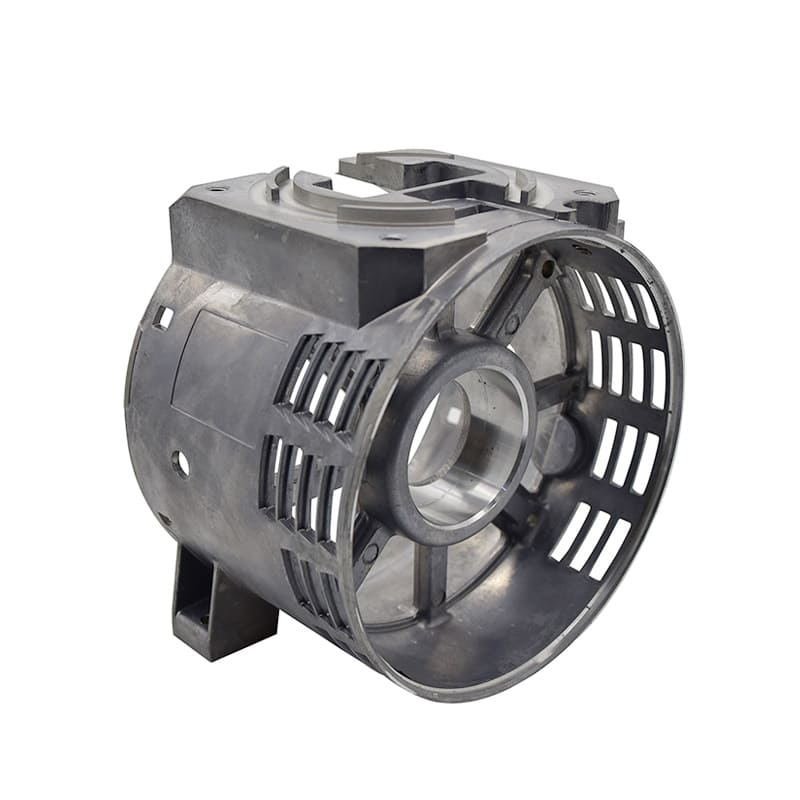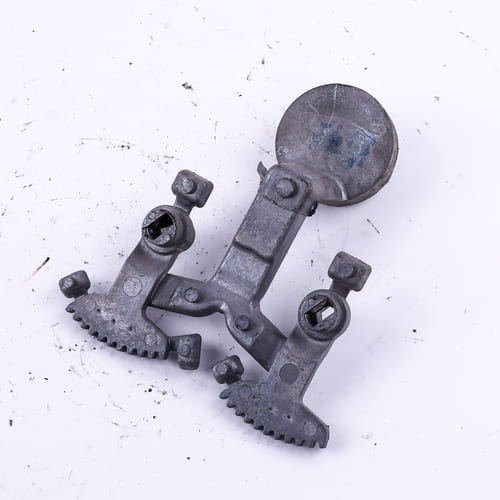According to a report, aluminum has become an important material in die casting automotive parts. Die casting is a well-known manufacturing process for many manufacturing industries. It is an effective process for manufacturing metal for industrial, commercial, and household products.
The choice of material for aluminum die casting has a significant impact on the design, heat treatment, and casting process.
The material’s choice also has a great impact on the rigidity and durability of the product.
In this article, we’ll explore some of the most commonly used materials in aluminum die casting and also discuss which material is best for die casting process.
Also Read: What is the best aluminum for die casting?
Aluminum Die Casting Process

The die casting process is well known for its capacity to create parts with precise surface quality and dimensions. This method is suitable for many industries because it is quick and cost-effective.
There are many steps involved during the design process of the mold
- Mold Creation
- Metal Preparation
- Injection process
- Casting process
- Finishing process
Mold Creation
The first stage in an aluminum die casting process is to create a mold. Metals like aluminum and steel are often used to create molds because they both resist the high pressures and temperatures generated during the die casting process.
A CAD model is used to design a mold. After that, CNC machining is used to create mold.
Metal Preparation
Metal preparation is the next step for injection. Usually, this metal is part of an alloy with additional elements like aluminum, zinc, and magnesium. In a furnace, the metal is then melted and poured into a ladle.
Injection Process
When the metal reaches a liquid state, it is poured into the mold under intense pressure. After that, the molten metal goes into the mold cavity to form the final shape.
The Casting Procedure
When the mold has cooled and solidified, the part in the mold is taken out.
Finishing process
The finishing stage is the last stage of this process. It plays a vital role in the aluminum die cast process, as it greatly impacts the durability of the part. There are many common finishing processes, including:
- Anodizing,
- Powder coating,
- Wet plating, etc.
Material Selection for Die Casting

The most important consideration in aluminum die casting project is to select the right material. The chosen material should be strong enough to withstand extreme pressure and temperature.
Additionally, always choose a material according to the die casting process.
The following are the most commonly used alloys for die casting.
- Copper
- Zinc
- Magnesium
- Aluminum
All are very sturdy and light-weight.
Aluminum Alloys
Aluminum is well known for its great thermal conductivity, durability, and lightweight nature. It is the most commonly and widely used material in die casting. It is very simple to cast because of its low melting point and strong corrosion resistance.
The most commonly used alloys in die casting are:
- A360
- A380
- A383
Zinc Alloys
In the casting process, zinc alloys are very common. Zinc is very simple and easy to cast because of its lower melting point. It has great corrosion resistance.
Some common zinc alloys for die casting are given below.
- Zamak 3
- Zamak 5
- Zamak 7
Magnesium Alloys
Magnesium is a very light material used in the die casting process. It has a great strength-to-weight ratio and very strong corrosion resistance.
Some commonly used magnesium alloys are given below:
- AZ91D
- AM60B
- AM50A
Copper Alloys
Copper is a high-cost material used for die casting. It is less used in the die casting process because of its lower strength compared to aluminum, zinc, and magnesium. It is an excellent choice for electrical applications due to its great electrical conductivity.
Commonly used copper alloys are:
- C87500
- C99700
- C99710
Aluminum Die Cast Design Guide

Aluminum die casting is a common manufacturing method for many die casting industries. It is a well-known method for the manufacturing of complex and intricate parts with great precision. Aluminum die casting parts require careful consideration of some factors for the best performance and quality of the details.
Key Design Guidelines for Aluminum Die Casting
- Wall thickness
- Draft Angles
- Radii and filets
- Bosses and ribs
Wall Thickness
The part’s wall thickness has a great impact on the part’s optimum strength and durability. It is very important for the part to avoid porosity, cracking, and shrinkage. Additionally, during the die casting process, the wall thickness should be 0.5 mm to avoid deforming and shattering the part.
Draft Angles
During the design process, draft angles must be included so that parts can be easily ejected from the die. It is necessary for the part to be removed smoothly from the die without affecting the part’s quality. Keep in mind that a draft angle must be 1-2 degrees for the majority of parts.
Radii and Filets
It is important to add radii and filets to the corners and edges of die casting for many reasons. First of all, due to sharp edges or corners, the part can fail or crack. Secondly, radii and filets can improve the rate of flow and reduce turbulence during the injection process.
By adding radii and filets, the part will have better surface finishes and less porosity. The radius of the filet should be between 1 and 2mm for aluminum die casting. But it all depends on the complexity and size of the parts.
Ribs and Bosses
Ribs and bosses have great importance during the design process. They should have round edges with uniform thickness to avoid defects like porosity and shrinkage. The corner’s radius of ribs and bosses should be at least 0.5mm. If they are not designed properly, there will be many defects in the design. Ribs and bosses have great importance as they add rigidity and strength to the part.
D. Reference to the “aluminum die cast design guide” keyword
Aluminum Die Casting Companies
The growing use of aluminum in different sectors like telecommunications and transportation is expected to drive market growth over the forecast period. In this scenario, Castingod is the top aluminum die casting company making OEM aluminum molding parts.
Today, companies in the transportation sector have to adhere to regulations to improve fuel efficiency and reduce harmful greenhouse gases, which is only feasible by combining lightweight materials in vehicle manufacturing.
Die Casting Market Analysis

The global die casting market is expected to grow by USD 105.55 billion by 2028, at a CAGR of 6.24% over the projected period (2023-2028).
| Study Period | 2018-2027 |
| Market Size (2023) | USD 77.99 Billion |
| Market Size (2028) | USD 105.55 Billion |
| CAGR (2023 – 2028) | 6.24 % |
| Fastest Growing Market | Asia-Pacific |
| Largest Market | Asia-Pacific |
Factors to Consider When Choosing an Aluminum Die Casting Company
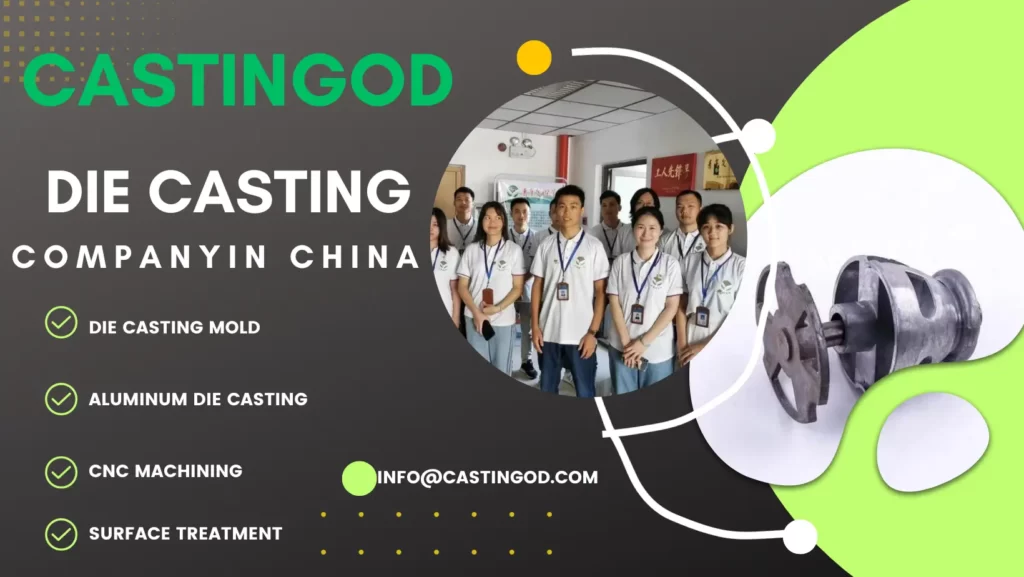
Aluminum is a common option for aluminum die casting for many industries. It is lightweight, and flexible, with exceptional corrosion resistance. It also has excellent ecological characteristics.
It is very important to choose a trustworthy and reputable aluminum die casting company for the success of the project. Always consider the following factors before choosing any aluminum die casting company.
- Expertise and experience
- Supplier network
- Manufacturing capabilities
- Quality assurance
- Design and engineering support
- Prototyping and tooling
- Customer reviews and references
Expertise and Experience
Always choose a company that has much experience with aluminum die casting. A professional company will have the skills and knowledge to manufacture premium parts and components within specified parameters. Analyze their expertise and experience to find out their previous records. Finally, you will be able to get an idea of their strength and flexibility.
Supplier Network
You should always consider the company’s network of material suppliers. A reliable and developed network of suppliers guarantees a constant supply of materials and reduces delays in manufacturing. Additionally, make sure the company uses high-quality aluminum alloys because the success of your project depends on it.
Manufacturing Capabilities
Analyze the company’s manufacturing capabilities and capacity of its machinery. Make sure they have advanced and professional tools, equipment, technology, and facilities to handle your project easily.
Quality Assurance
Quality has the greatest importance in aluminum die casting. Discuss with the company about their quality capabilities and methods they use. Always check their license like ISO 9001, which shows their commitment to maintaining high standards. Inquire about their testing methods and how they maintain consistency and stability in their product’s quality.
Design and Engineering Support
Look for a company that supports design and engineering in the manufacturing of products. Working with professional engineers can help improve components’ design and performance. You should also check whether the company has CAD/CAM software, as this software has a great impact on component design.
Prototyping and Tooling
Check the prototyping and tooling capabilities of the company. The ability to produce prototyping and tooling can save delays and costs significantly. Analyze the methods they used to modify the molds. It all depends on the customer’s feedback and time frame.
Customer Reviews and References
You can also check previous customer’s reviews and references about the company’s flexibility and dependability.
D. Tips for finding “aluminum die casting companies near me”
Conclusion
The success of any aluminum die casting manufacturing depends on the right material and professional die casting company. Choosing the right material is essential to the success of any die casting project. You can choose the best material for your project by following given consideration
- The strength and durability requirements of the final product
- Cost-effectiveness
- Production volume and timeline
- Surface finish and appearance
- Chemical and thermal properties of the material
You can create premium components and parts by choosing a professional company and the right material.

